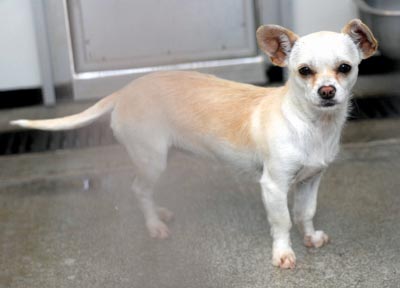
Hollister City Council members Monday OK’d a new ordinance to
require spaying and neutering of two dog types
– Chihuahuas and pit bulls – while allowing owners to get
certified to keep those animals unaltered.
Hollister City Council members Monday OK’d a new ordinance to require spaying and neutering of two dog types – Chihuahuas and pit bulls – while allowing owners to get certified to keep those animals unaltered.
Council members have been considering the topic of requiring spaying or neutering of the two dog types for several months now in light of Hollister Animal Shelter statistics showing those canines make up for a majority of those taken in or put down at the local facility.
Council members initially considered an ordinance to require spaying or neutering of Chihuahuas and pit bulls, but that idea was met with strong opposition from local dog lovers and groups outside of the state, including the Chihuahua Club of America, which contended the city’s use of its definition for a Chihuahua in the proposed ordinance violated copyright laws.
After meeting with concerned residents in August and September, city officials came up with the revised version of the ordinance, which was approved Monday in the first of three required readings.
That new law still requires spaying or neutering in most instances, but it also includes the provision allowing residents to obtain “unaltered dog certification” for pets over six months of age, while there is no registration fee amount listed. The new ordinance also lists off exemptions, such as dogs boarded in a licensed kennel or business that boards animals for professional training or resale.
The animals and their owners, however, have to meet an array of criteria for the certification.
One of the first rules mentioned is that the owner cannot have been convicted of or on probation for certain dog-related violations in the prior 36 months, according to the ordinance. Another one is that the dog has to be examined annually by a licensed veterinarian.
Penalties for violating the new ordinance include fines of $100 for a first one, while the owner can be cited again if the dog is not fixed within 30 days.
A second violation within a year calls for a fine of $200, according to the law. For the third or more violations within a year, they can be punishable with a misdemeanor.









